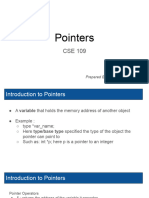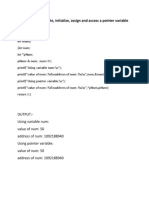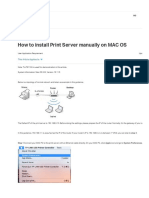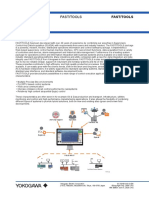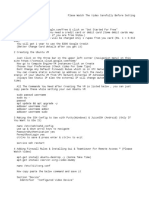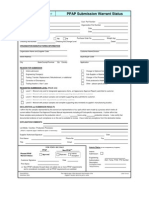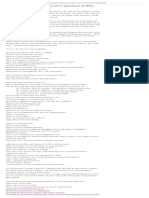0% found this document useful (0 votes)
15 views35 pagesModule4 - C - Programming - QB
The document contains a series of programming questions and answers related to C, focusing on pointers, arrays, and memory management. It includes code examples for various concepts such as comparing arrays, pointer arithmetic, dynamic memory allocation, and file handling. The document serves as a comprehensive guide for understanding and applying pointer concepts in C programming.
Uploaded by
Bhagya P SCopyright
© © All Rights Reserved
We take content rights seriously. If you suspect this is your content, claim it here.
Available Formats
Download as PDF, TXT or read online on Scribd
0% found this document useful (0 votes)
15 views35 pagesModule4 - C - Programming - QB
The document contains a series of programming questions and answers related to C, focusing on pointers, arrays, and memory management. It includes code examples for various concepts such as comparing arrays, pointer arithmetic, dynamic memory allocation, and file handling. The document serves as a comprehensive guide for understanding and applying pointer concepts in C programming.
Uploaded by
Bhagya P SCopyright
© © All Rights Reserved
We take content rights seriously. If you suspect this is your content, claim it here.
Available Formats
Download as PDF, TXT or read online on Scribd
/ 35














































